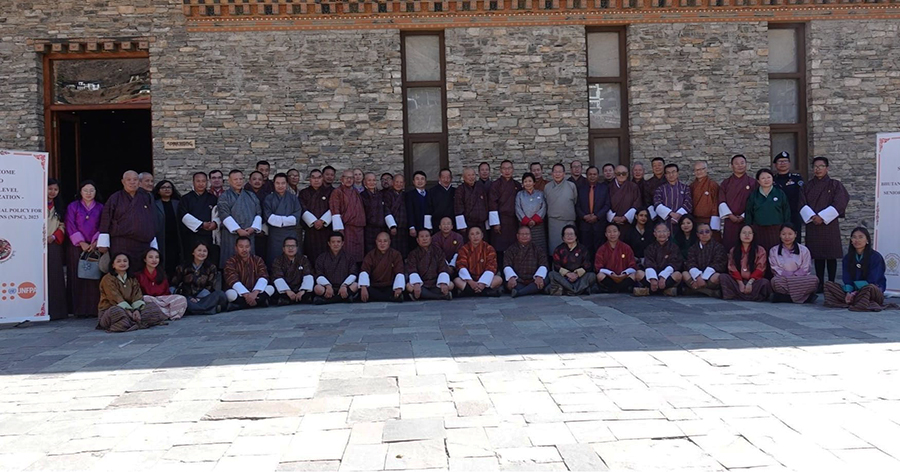
With the country’s elderly population projected to double by 2047, concerns about age-friendly infrastructure, accessible healthcare, and public services have become pressing issues. Two months ago, the Cabinet Secretariat organised a multi-sectoral workshop supported by the United Nations Population Fund to develop action plans for Senior Citizen Policy. To garner support, the Royal Society for Senior Citizens conducted a high-level sensitisation programme on the policy in the capital on 21st December.
As Bhutan prepares to address the needs of its rapidly growing elderly population, the National Senior Citizen Policy is almost being finalised.
With a vision to create an inclusive society where senior citizens live meaningful, productive, healthy and dignified lives, the Royal Society for Senior Citizens has developed a policy action plan.
The Policy Action Plan was developed based on nine areas such as family and social support, safety and security, and health and well-being, among others.
The policy action plan also proposes providing pensions for senior citizens to support them.
“A state sort of pension, that is what is being proposed. And then the second one is also like, action is an engagement of the senior citizens in relevant areas, wherever they can contribute because as we look around, we will see so many retirees in our country, but the retirement age, again, 58 to 60, I think people retire quite early,” said Pema Lhamo, trustee, Royal Society for Senior Citizens.
She added that this is the age where they are most experienced and learned, yet the engagement and contributions to society are less following retirement.
Pema Lhamo said the action plan also recommends that the government build infrastructure, which will include ramps and lifts. Currently, most buildings do not have the facilities required for senior citizens and persons with disabilities.
“While we say it is a policy for the senior citizens, I think the policy encompasses the whole family fabric better because if the elderlies are taken care of, then our younger generation gets relieved of the much demanding burden of taking care of the elderly, and then which puts more pressure on our younger generation, in addition to their other pressure of employment,” added Pema Lhamo, trustee, Royal Society for Senior Citizens.
The government has set aside Nu 2bn for the implementation of a new social protection system in the 13th Five-Year Plan to enhance social security for senior citizens.
“After reviewing the action plans, we should accept and implement those plans/ strategies worth implementing. Urgency should be considered. Ultimately, policy is important and required. However, the preservation of our deep-rooted culture and traditions is more important. The government can frame policies, but when it comes to the welfare of the elderly citizens, the education on it should start from an individual’s family. Values are crucial in fostering a society that honours and supports its senior citizens,” said the Prime Minister.
The Prime Minister also called for collective efforts to ensure the success of the sensitisation program. He urged civil society organisations, local governments, private sectors, religious communities, and individual families to collaborate in creating a supportive and inclusive environment for senior citizens.
The formulation of the policy started in 2022 and was launched last year.
Devika Pradhan
Edited by Phub Gyem










